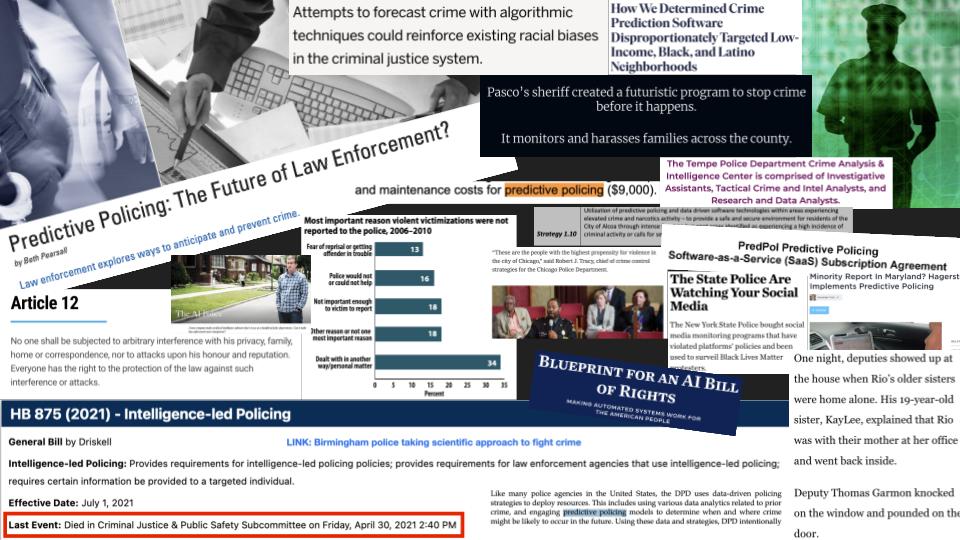President's Showcase
Ella Windlan she/her
Supervising Professor: Dr. Trinyan Mariano
Ella Windlan is a third-year honors student and Presidential Scholar from Hudson, Florida. After witnessing the social unrest and amplified inequality in her hometown resulting from the COVID-19 pandemic and Pasco County Police Department's "intelligence-based policing program," Ella began exploring research as a means for advocacy early in her collegiate journey. Through the Undergraduate Research Opportunity Program, Ella worked on Dr. Graban's Linked Women Pedagogues Project to trace the intellectual influence of underrepresented women in the field of rhetorical studies. Then, inspired by a White Paper she wrote for Dr. Mariano's Literature of Human Rights course, she began working on her current project exploring the civil and human rights implications of predictive policing, an issue that greatly impacted her community. She presented her research at the 2023 Florida Undergraduate Research Conference and the 2023 Association for Computers and the Humanities Conference before being awarded the David B. Ford Undergraduate Research Award to continue developing her project in 2024. She is currently in her prospectus semester of the Honors in the Major program to establish her research into a senior thesis. After graduation, Ella hopes to pursue a Ph.D. in International Social Policy, dedicating her career to human rights advocacy.
Abstract
In the past two decades, police departments across the nation have begun employing algorithmic technology to aid in the detection and prediction of crime. Police use this spectrum of technology to generate “reasonable suspicion” by computing factors such as an individual’s address, criminal record, record of school misconduct, parking tickets, etc. Proponents claim that the technology improves police effectiveness and efficiency and that, by relying on neutral variables rather than legally protected classes such as race and ethnicity, it reduces the potential for police bias and discrimination. In recent years, however, growing concerns about the supposed neutrality of algorithmic technology have raised ethical, legal, and constitutional concerns about the utilization of big data synthesis by police to make predictions about future crime and criminals. This multidisciplinary project amalgamates empirical evidence from the investigations of the data-intelligence policing program in Pasco County, Florida with research drawn from the fields of criminology, data ethics, sociology, law, and the humanities in order to analyze the efficacy, empirical impact, and human/civil rights implications of predictive and data-driven policing practices.
Presentation Materials



